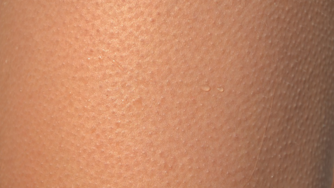Taking Care of Skin as a Dermatologist
Is this field for you?

Beautiful skin is highly-coveted, lovely to see, and the largest organ on the human body. As part of the integumentary system (hair, skin, nails), our shield against the elements is key to survival.
Without it, we likely couldn’t stand the pain of a gentle touch or a light breeze. With it, we can thoughtlessly fend off most bacteria, viruses, and other dangerous substances.
Between perfect complexion and skin’s wonderful protectiveness, it’s no surprise we have an entire branch of medicine dedicated to its care. Society refers to this medical field as dermatology.
As a dermatologist, medical students can look forward to helping patients feel comfortable in their skin, by diagnosing and treating the integumentary system. Let’s take a look at dermatology and some of the ways you may be caring for patients in the future.
Basic Overview
On the road to becoming a dermatologist, roughly 9 years of mandatory study is required. During this time, budding dermatologists learn the basic operations of the skin, as well as how it reacts to potential hazards, such as pathogens and chemicals.
After acquiring the necessary knowledge, students move on to gaining first-hand experience in identifying various skin conditions. Over time, this will help medical students specialize in recognizing the specifics about dermatology, necessary to identifying a potential skin cancer compared to a chemical burn.
Cosmetic or Health-Related – Why Patients Visit Dermatologist
From cosmetic to potentially life-threatening, there are loads of reasons for a patient to see a dermatologist.
Many patients seek out dermatologists to feel more confident regarding the following issues:
- Liposuction
- Wrinkle reduction
- Hair removal
- Scars
- Spider veins
- Pigment issues
- Tattoo removal
Dermatologists working in a hospital are more likely to see patients experiencing the following health-related issues:
- Acne that doesn't respond to over-the-counter treatments
- Unusual skin spots that suddenly appear, such as moles
- Red, itchy rashes
- Bad reaction to environmental stimuli
- Chemical peel for sun damage treatment
- Allergy testing to test for contact dermatitis
- Dermatopathology-related issues, namely potential pathogen interaction
- Immunodermatology problems, where skin doesn't protect due to internal issues
- Pediatric dermatology, such as complex diseases in infant skin
Taking great care of your skin, be it with moisturizer or drinking plenty of water, is important. Dermatologists step in when these basic maintenance routines are no longer effective. They also provide a skilled set of eyes when determining what ails a patient’s skin.
Dermatology is a great field for anyone who wants to run the gamut from saving lives to giving more confidence to their patients.

